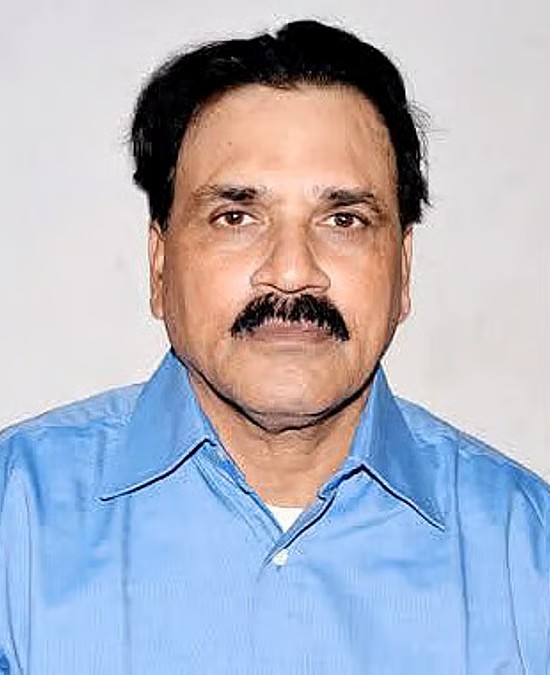A group of people in Rangpur, identified as “July Warriors,” picked up and beat up senior journalist Liakat Ali Badal on Sunday night and pressured him to apologise to the CEO of the Rangpur City Corporation.
The local journalist community has strongly protested the incident.

Liakat Ali Badal is the Rangpur divisional correspondent of Ekushey Television and works as a staff reporter of the Daily Sangbad and Bangla Tribune. He said that the attack was carried out due to a report, titled “Auto-rickshaw licenses in the name of July fighters in Rangpur, Tk5 crore business scam,” published in the Daily Sangbad on September 17.
A group of 15-20 people led by a person named Enayet Ali Rocky, a resident of the Jahaj Company area of the city, picked him up from the Kachari Bazar intersection and took him to the city corporation office. There, his mobile phone was taken away and he was beaten up.
The journalist said that Rangpur Divisional Commissioner and City Corporation Administrator Shahidul Islam and Chief Executive Officer Umme Fatima instigated the incident.
Mobocracy: Bangladesh is not the right place for journalists
Journalist who accused Ukhiya OC of harassment found dead
Islamic NGO building mosque in Nepal files defamation case against journalist
Journalists working in Rangpur protested in front of the CEO’s office in protest of the incident. They demanded the arrest of those involved within 24 hours and the removal of the CEO.
Extortion and harassment by July Warriors
Such misdeeds in the name of July Warriors are not new. Earlier, three leaders of the Anti-Discrimination Student Movement (ADSM) were arrested by the police while demanding Tk50 lakh as extortion in the residence of former Awami League MP Shammi Ahmed in the capital’s Gulshan-2 area. Recently, three more were arrested in Uttara on charges of extortion in the name of coordinators, from whom Tk430,000 was recovered.
According to media reports and confessions of the arrestees, LGRD Adviser Asif Mahmud and National Citizen Party (NCP) leaders Nahid Islam, Sarjis Alam, Hasnat Abdullah and Abdul Hannan Masud are the ring leaders. On the other hand, several advisers to the Yunus-led interim government and the chief adviser’s press secretary have stressed that such mobs should be called pressure groups.
Repression of the media
Since the beginning of the interim government in August last year, various types of pressure have been put on the media. At the very beginning of the government, the accreditation cards of 167 journalists were cancelled, which deprived them of the right to cover government activities. Human rights organisations have condemned this move as state censorship. In addition, there have been attacks on dozens of newspaper and TV offices, alongside pressure for changing senior journalists.
Razakar Azam’s son threatens journalist Panna, Anandabazar for revealing ISI operations
People think Yunus government is highly corrupt, says journalist Arshad Mahmud
Journalist hacked to death in Gazipur for reporting extortion
Murder cases have been filed against over 200 journalists, while over 1,000 journalists have lost their jobs. Moreover, membership of over 100 journalists in the National Press Club and other associations has been revoked in the face of demands by the NCP leaders, who lead the mobs.
From August 2024 to July 2025, 496 journalists were harassed, and three lost their lives in the line of duty. Illegal arrests, disappearances and intimidation of journalists, writers and human rights activists have reached unprecedented levels.
Journalists are being implicated in disappearance cases in various districts of the country, including Dhaka, Sylhet and Chittagong, most of which are related to past political unrest. These cases are using weak or contradictory evidence, which bears evidence of an organised effort to criminalise independent thought.
Threat to democracy
According to analysts, when language itself becomes illegal, democracy dies in the dark. A campaign of suppression of speech is underway in Bangladesh, which has become the most dangerous threat to the country. This is not just censorship, but an attempt to systematically erase dissent.
The journalistic community is being silenced by revoking the press accreditation of hundreds of journalists, attacking media offices, and removing editors and news directors. The government’s indifference to reforming the Right to Information Act is undermining the public’s right to know.
Bangladesh is on the verge of becoming a country where silence is imposed. Telling the truth is now a brave but dangerous act. Journalists are paying the price with their voices.